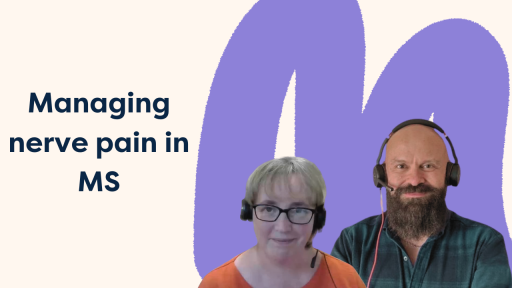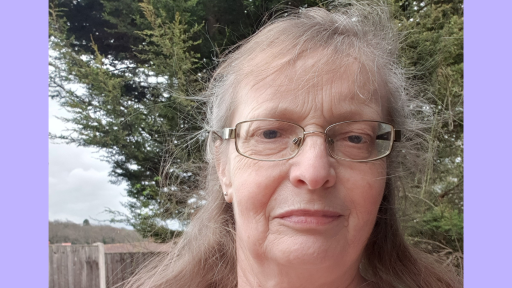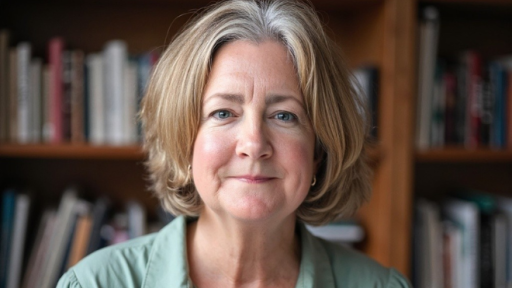Now in her thirties, Stephanie tells us below about her journey with MS and her success as a Paralympic athlete as she prepares to compete in Rio 2016.
I am a lucky, lucky person even with MS because the MS has made me strong and has offered me opportunities I would never have been given otherwise. MS for me is therefore a positive thing not a negative one!
Can you give us a bit of background about yourself?
I was born in Jeddah, Saudi Arabia which is a desert and the only way of cooling down was to go for a swim. I started swimming properly when I was four years old and I won medals in the five and under age category. At the age of eight, I swam in Rhiyadd in the Junior Olympics and won a gold medal for 100m backstroke. I loved swimming so at the age of ten, when the Gulf war forced my family to move to the UK, I kept swimming for a local club, Corsham Amateur Swimming Club. I still represent this club now many years later!
My first national competition was when I was 14 and after this competition I started training at Bath University to get more pool time. At the age of 15, I won a gold medal at the age group nationals for 100m backstroke with a new record time. This swim qualified me to go to two World cup events swimming for the senior Great Britain team in Sweden and Germany. I was the fastest swimmer for 100m backstroke in the whole country so I would have made the team for Sydney 2000. This was my dream!
Then I swam in Shanghai for the World Schools games – this was the first time I noticed the MS symptoms as I was seeded first for this competition but I didn’t swim well, flying home feeling not well at all. My first symptoms were eyesight and dizziness problems then walking issues then complete total blindness and paralysis. My swimming dreams were over. My straight A’s at school disappeared and I was converted into someone who needed having the exam papers read to me as I couldn’t see well. I got one E in my A levels which destroyed my confidence and motivation.
How old were you when you were diagnosed with MS?
I noticed symptoms of MS in 1998, aged 16, but then the symptoms got so bad in 1999 that I couldn’t get out of the pool and couldn’t see (age 17). I was diagnosed with MS four days after my 18th birthday – happy birthday Stephanie 24th September 1999.
Looking back, did you have symptoms before this?
I was a ballet and tap dancer when younger so I can’t have had this illness forever.
How did you feel about your diagnosis?
It was a name for the illness and for all the symptoms so it was a relief in the end. Obviously I had read all the paperwork about MS and knew all the bad things that some people get which was very scary.
Did life change for you after you were diagnosed?
Life changed dramatically when I got sick but then didn’t change much after diagnosis as it was just a name for the symptoms.
How did your friends and family respond?
My Mum was petrified and wished that she could take the MS off me as she had already lived her life and I was yet to live mine. My sister and brothers were upset too but stayed positive for me.
We’ve spoken to some teenagers who felt bullied or misunderstood by their classmates when they were first diagnosed. Did you experience anything like this?
A few times when I wanted to go somewhere with my friends, they didn’t want me to go as they knew I would struggle with walking so I lost a few friends but a lot of older friends were very strong for me. I remember going to the local pub but I wasn’t allowed in because I had apparently drunk too much with my inability to stand/walk and my slurred words. In the end, they let me in when my friend got very mad with them saying they were discriminating against me.
What would you suggest to help anyone in this situation?
Stay strong. You know you are trying your best. If other people can’t accept it, these people are not worth knowing.
Which MS symptoms have you experienced?
Optic neuritis, total blindness, dizziness, paralysis, not being able to stand or walk, pins and needles, pain in left side especially left arm and hand, talking problems, balance problems, tingling and heat issues, legs/feet that feel like lead.
What do you do to manage your MS well?
I started taking beta intereforon in the year 2000 and it seemed to help me but I decided to stop it when I started training properly for the Beijing 2008 Paralympics. I have been on no treatment since.
If you could go back and advise your teenage self, what would you say?
Keep believing and keep dreaming as your dreams can still come true. I stopped swimming in 1999 because I couldn’t move but asked my Mum to take me to the pool so I could try to lose some weight. My Mum took me but then said she couldn’t come again because it was too hard for her. I realised then that I had to be strong and do things on my own. I employed a personal trainer to reteach me how to stand and walk again and I started swimming a couple of times a week.
One day when I was in the pool, a friend of mine asked me to teach his friend Adrian how to swim as he wanted to do a triathlon. Adrian and I are now married but he still hasn’t done that traiathlon! Adrian was the one who said ‘why don’t you train for London 2012 paralympics as you still have your good swimming strokes. You can realise your dreams of going to the Olympics/Paralympics!’ So this is what I did, by moving to Swansea to a swimming coach who wanted to coach me. Beijing 2008 jumped in too early after I had trained in Swansea for only 7 weeks. In London 2012, however, I won four silver and one bronze medal! My dreams have come true! I also carried the Olympic torch which was incredible!! My story proves that any dream can still come true even though an illness ripped my life into millions of pieces.
What would you suggest to a young person who has been diagnosed recently?
Keep believing and keep dreaming. Don’t let MS or any other illness stand in the way of your hopes and dreams – if you believe it you can achieve it! Good luck and keep smiling!!
And what’s next?
I am training for Rio 2016 Paralympics which will be my third Paralympic games. I have had MS for 18 years which is more than half my life. I smile 100 percent of the time and love every day of my life. I am a lucky, lucky person even with MS because the MS has made me strong and has offered me opportunities I would never have been given otherwise. MS for me is therefore a positive thing not a negative one!
I wrote my life story in my autobiography ‘Paying the price’ which can be purchased from booksellers or online.
Compare Stephanie and Amelia's* stories
Stephanie was diagnosed when she was 18 which is over 15 years ago. We also asked Amelia*, who was diagnosed only two years ago at the age of 14, the same questions.
*Some names have been changed


